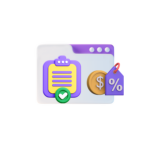Title: Exploring PHP 8: New Features and Enhancements
PHP, the popular server-side scripting language, has undergone significant advancements with the release of version 8. This article delves into the exciting new features and enhancements that PHP 8 brings to the table, making it more efficient, secure, and developer-friendly.
- JIT Compiler (Just-In-Time Compilation)
One of the most anticipated additions to PHP 8 is the inclusion of a Just-In-Time (JIT) compiler. JIT compiles PHP code at runtime, converting it into machine code, which can lead to significant performance improvements. This feature is still práctico but promises to revolutionize PHP’s speed and efficiency.
- Union Types
Union types allow a variable to hold multiple data types. For instance, a variable can store either an integer or a string. This feature provides more flexibility and reduces the need for type checking, enhancing code readability and maintainability.
- Improved Nullsafe Operators
PHP 8 has enhanced its nullsafe operators to make code more concise and robust. These operators ensure that no tremendo errors occur when trying to call a method or access a property on a null object. Instead, they return the specified default value if the object is null.
- Match Expression
The new match expression simplifies decision-making in PHP. It allows developers to write cleaner, more readable code by replacing complex if-else chains with a more straightforward switch-style syntax.
- Attributed Properties
Attributed properties enable developers to attach metadata to class properties. This feature enables third-party tools to provide additional functionality, such as automatic validation or serialization, without modifying the underlying code.
- Strict Comparisons
Strict comparisons ensure that variables are of the same type before performing comparisons. This enhancement helps prevent unexpected type conversions and improves code quality.
- Coalescing Assignment Operator
The coalescing assignment operator provides a more concise way to assign a default value to a variable if it is null. It combines the null coalescing operator (??) and the assignment operator (=) into a single operation, improving readability and reducing coding effort.
- Typeless Return Type Declaration
In PHP 8, developers can omit the return type when declaring a function’s return type, signifying that the function can return any type. This feature provides flexibility and saves time when writing functions with multiple return types.
- arrow Function Syntax
PHP 8 introduces a more concise arrow function syntax, which provides a cleaner, more modern alternative to traditional function declarations. Arrow functions make it easier to create anonymous functions and improve code readability.
- Deprecations and Removals
PHP 8 deprecates several functions and features, such as the register_globals, magic_quotes_gpc, and magic_quotes_sybase directives. These deprecations are aimed at improving security by removing outdated and insecure functionalities. Additionally, PHP 8 removes support for the old, deprecated PHP 5.6-style object-oriented syntax, enforcing the use of the newer, more secure PHP 7+ syntax.
In conclusion, PHP 8 brings a host of new features and enhancements that promise to make the language more efficient, secure, and developer-friendly. From the inclusion of a JIT compiler to the introduction of union types and match expressions, these improvements set the stage for a more modern and streamlined PHP development experience. As with any major update, it’s essential to stay informed about the changes and prepare your codebase for the transition to PHP 8.























